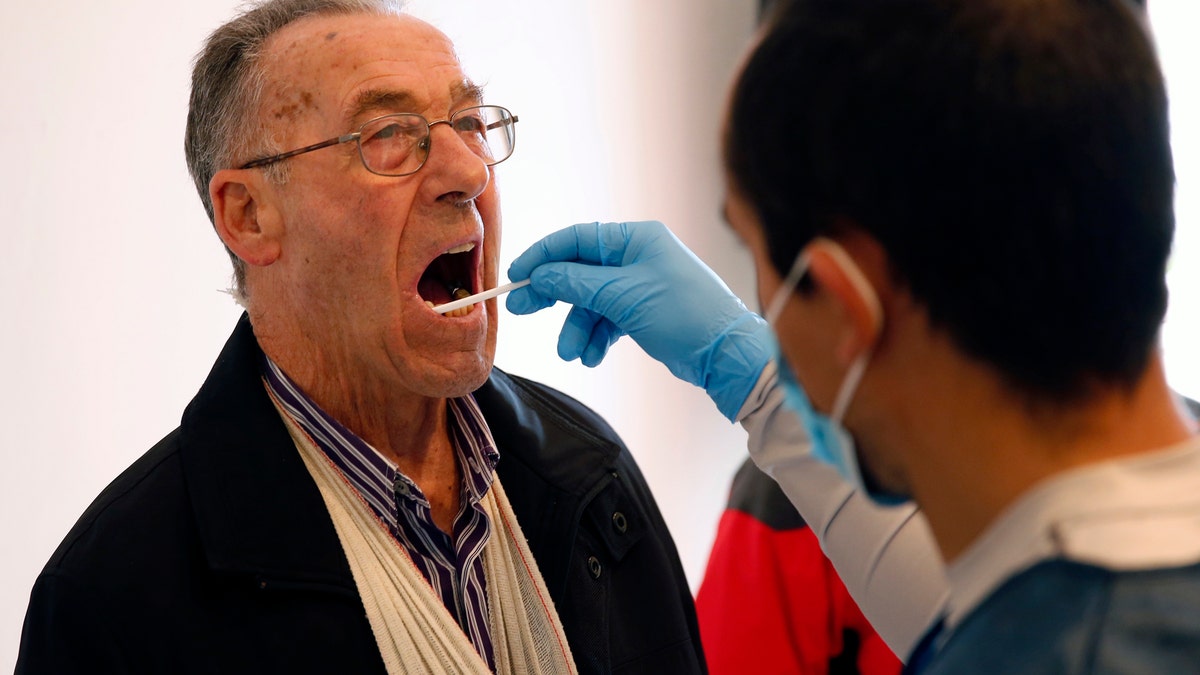
File photo: Gonzalo Carnim, forensic of the Association for the Recovery of Historical Memory (ARMH), takes a saliva sample from a man for a DNA test in Guadalajara's cemetery, Spain, January 22, 2016. (REUTERS/Juan Medina)
Having your smartphone run out of battery power at a crucial moment can make you mad enough to spit. Fortunately, new research coming out of Binghamton University, State University of New York suggests that could one day be the perfect solution. Thats because members of the electrical and computer science department have developed the next step in microbial fuel cells (MFCs): a paper-like battery thats activated by saliva.
[We have developed] a disposable, easy-to-use, and portable biobattery that can generate power from bacterial metabolism, Professor Seokheun "Sean" Choi told Digital Trends. This battery is ready to operate with human body fluids like saliva for on-demand power generation for other disposable low-power applications, such as biosensors. The battery includes specialized bacterial cells called exoelectrogens, which have the ability to harvest electrons externally to the outside electrode. For long-term storage, the bacterial cells are freeze-dried until use. This battery can be used even in challenging environmental conditions like desert areas. All you need is an organic matter -- such as saliva -- to rehydrate and activate the freeze-dried cells.
As it turns out, this isnt the first time weve written about the use of saliva in tech. Previously weve discussed smart mouthguards and even smartphone apps that are designed to monitor health and diagnose infections through small saliva samples. However, this is the first time weve written about saliva-powered batteries.
Binghamton University
While we hope to never live in a world in which our fellow commuters start the day frantically spitting (or worse) onto their iPhones to charge them up, as Choi points out, this technology could be extremely useful in certain extreme settings.
Right now, the bacterial electricity produced isnt close to enough to power a phone. Testing of the device by the team demonstrated that it can achieve a power density of several microwatts per square centimeter, meaning that it can currently power an LED light using a single drop of spit. That means the technology is more likely to find use in powering low-energy disposable diagnostic devices in developing countries. But that's not to say the tech wont expand in the future.
We are improving the power to have more applications, Choi said. Folding or stacking paper batteries will connect them in series or parallel for further power enhancement. This could allow the researchers to expand the power of the batteries from a few microwatts into hundreds, or conceivably more.
A paper describing the work was recently published in the journal Advanced Materials Technologies.








































